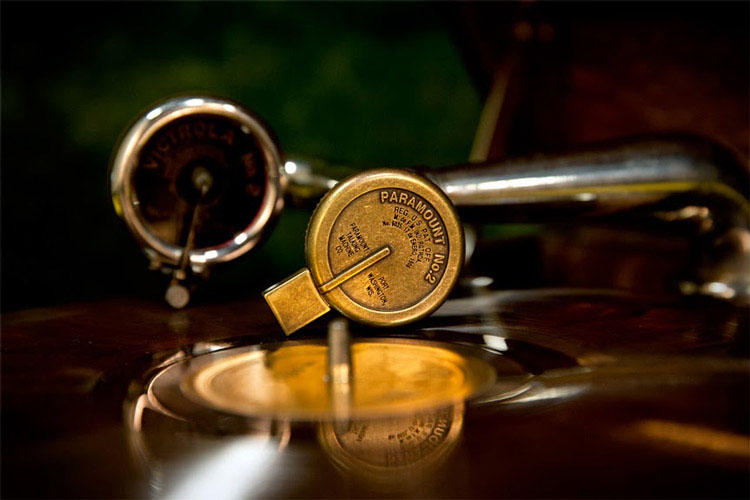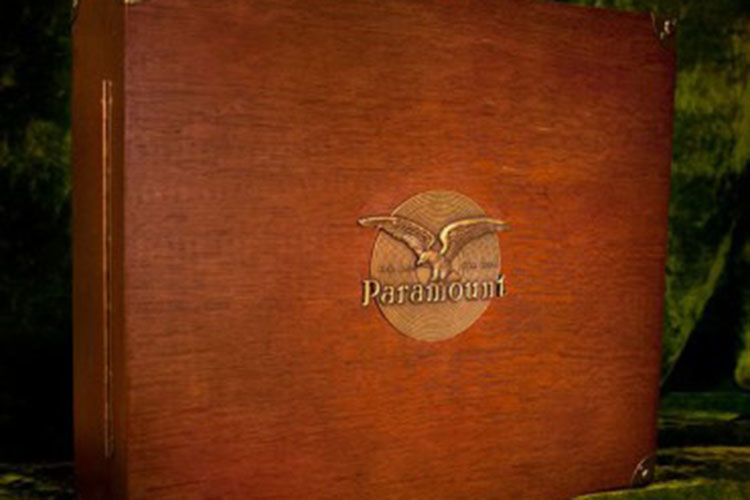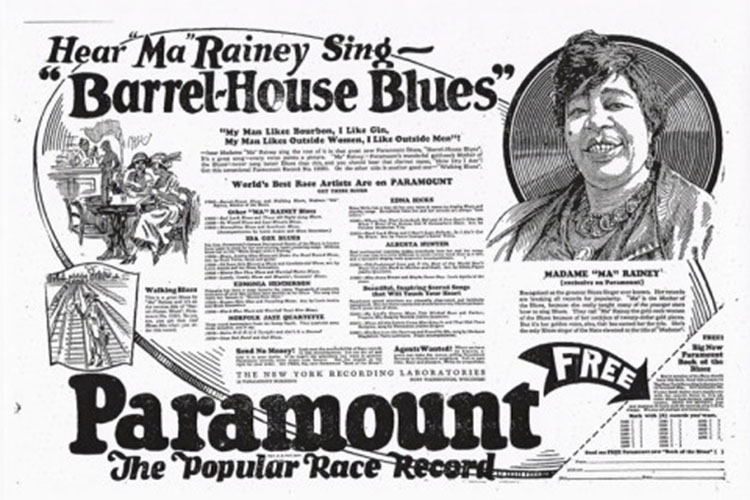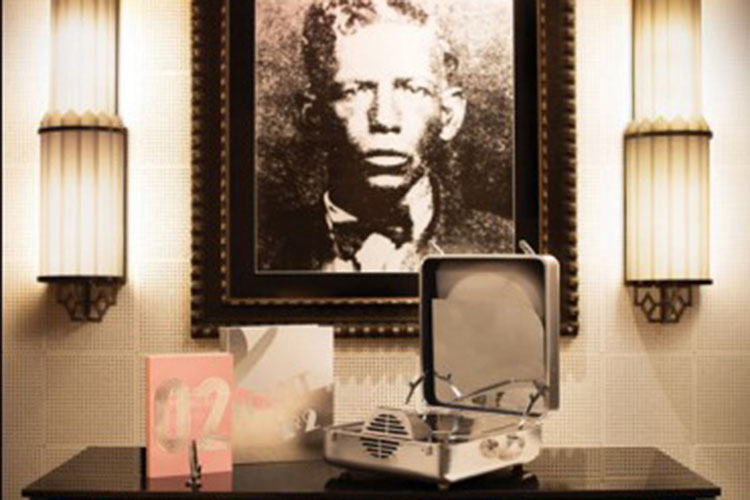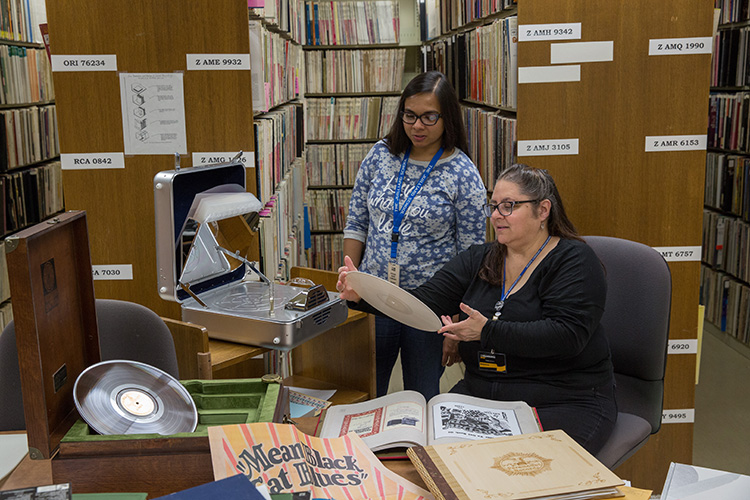What do the Mississippi Delta, Chicago, Motown, New Orleans and Grafton, Wisconsin, have in common?
They’re all places significant in the development and preservation of the uniquely American art forms of blues, jazz and gospel music.
The prominence of Grafton’s Paramount Records is now documented in a limited edition two-volume set of musical recordings and history books, recently given to the University of Wisconsin-Milwaukee Libraries’ Music Library. When the libraries put “The Rise and Fall of Paramount Records” into circulation in the spring of 2016, UWM will be one of the few places in America where students, historians and even the general public can study and possibly check out this remarkable collection of some of the greatest American music and musical history of the 20th century.
“The Rise & Fall of Paramount Records, Volume One” and “The Rise & Fall of Paramount Records, Volume Two,” each priced at $400, were purchased and donated by local music and art lovers and will be unveiled at a Dec. 4 reception at 4 p.m. at the Golda Meir Library. The celebration will include a guitar performance by Gabriel Andrews, who earned his master’s degree in music at UWM. He will be playing the music of Paramount recording artists.
“They are a significant addition to the musical world because they preserve for the future a large volume of music that was thought lost to history and the vagaries of lack of foresight,” said Rebecca Littman, senior academic librarian and head, UWM Music Library. The university is one of the few circulating libraries in the world that has both boxed sets, and will make the 1,600 total songs and accompanying history books, from hardcover large format books to an encyclopedic collection of nearly 200 artist biographies, available to music researchers and students.
The two boxed sets were compiled and released through rock star Jack White’s Third Man Records in partnership with Revenant Records, founded by the late guitarist John Fahey.
The volumes, published in 2013 and 2014, tell the unlikely story a furniture company based in Port Washington, Wisconsin, that recorded and preserved a treasure trove of early blues and jazz.
The Wisconsin Chair Company had branched into making phonographs and record cabinets in the early part of the 20th century. To encourage customers to buy the phonographs, the company leaders decided to create their own 78rpm records through a subsidiary, Paramount Records, based in nearby Grafton.
The company started out recording typical Wisconsin music – polkas and Norwegian songs, according to John Stropes, director of UWM’s guitar program. Along the way, Paramount acquired another record company that specialized in “race music,” targeted to African-American customers. Long before the Smithsonian, Library of Congress and other institutions set out across Appalachia and the Mississippi Delta with their tape recorders, Paramount sought out and recorded musicians like Alberta Hunter, Louis Armstrong, Jelly Roll Morton, Fats Waller, Charley Patton, Blind Lemon Jefferson and Ma Rainey.
Paramount Records didn’t anticipate developing a historic collection of music, but the label unexpectedly ended up preserving rare music that might otherwise have been lost. Founded in 1917, Paramount went out of business in 1932.
“In the later 20s and 30s, they did so much to document African-American music,” Stropes said. “It was the greatest blues music of the time. It’s part of the history of music that is unique to Wisconsin and this region.”
In fact, finger-style guitar playing grew out of that blues tradition, adapted by folk artists and other musical groups in the 1960s and 1970s. That development, in turn, led to UWM’s finger-style guitar program, the only one of its kind in the world, Stropes said.
UWM acquired the limited edition boxed sets through a series of chance meetings and collaborations. Rebecca Holderness, associate professor of theater, worked with Stropes on a production of “The Road North,” an original musical theater work about the blues and blues musicians’ journey north to Paramount Records. They later partnered on another production, “Meet Me at the Avant Garde,” about a Milwaukee coffee house of the 1960s, where music with its roots in that earlier era was a staple.
Holderness is founder, president and artistic director of The Battery Factory, which brings together professionals from arts and business with younger artists and business professionals. Littman, also a member of The Battery Factory, happened to be at an event where she mentioned that Jack White’s two-volume collection was on her “wish list” for the music library. Nic Bernstein, vice president of the Battery Factory and Christine Prevetti, another member, offered to purchase and donate the two volumes.
Each volume includes a USB drive with 800 songs, a selection of 33 1/3 rpm records and a detailed and carefully researched history of Paramount Records. Volume one was packaged in a reproduction of one of Paramount’s original quarter-sawn oak cabinets, winning a Grammy Award for Best Special or Limited Edition Package Design and a Grammy nomination for best liner notes. The second set is packaged in a reproduction of RCA Victor’s Special Model K aluminum portable record player.
“I’ve posted some information on them on my Facebook page, and my music librarian colleagues were extremely envious that we managed to acquire them,” Littman said.
Learn more about the unveiling of the Paramount collection at UWM.
